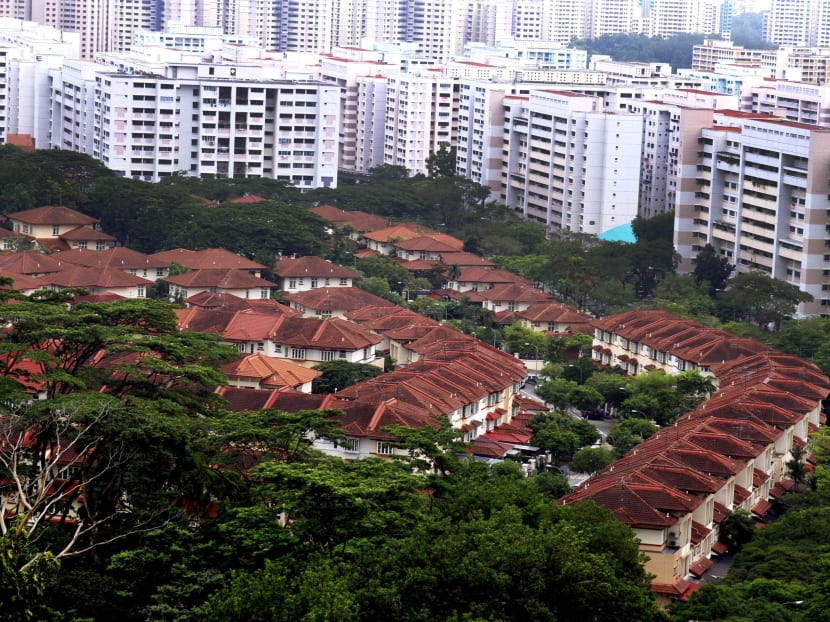Airbnb short-term rentals could be allowed under URA proposed regulatory framework
SINGAPORE — Owners of private residential properties could be allowed to lease out their apartments for Airbnb-style short-term stays under a new use category proposed by the Urban Redevelopment Authority (URA).
SINGAPORE — Owners of private residential properties could be allowed to lease out their apartments for Airbnb-style short-term stays under a new use category proposed by the Urban Redevelopment Authority (URA).
Releasing its proposed regulatory framework for public consultation on Monday (April 16), the URA spelt out the qualifying criteria for homes to be used for short-term stays, conditions and requirements for homeowners, as well as the roles and responsibilities of stakeholders, such as management corporations (MCSTs) and short-term accommodation platforms.
This new use category will apply only to private residential properties, said the URA, and is not applicable for Housing and Development Board (HDB) properties.
Currently, private residential properties in the Republic are subject to a minimum stay duration of three consecutive months.
In a Facebook post on Monday, National Development Minister Lawrence Wong said the authorities have been "very cautious about allowing short-term accommodation" (STA) due to concerns about the potential impact on residential neighbourhoods.
He added: "After studying the issue for some time, we think it is possible to allow such STAs in private residential properties, but subject to appropriate regulation and safeguards ... In the meantime, please remember that all rental of private residential units are subject to existing laws, which means that the tenancy must meet the minimum period of three months."
The proposed regulatory framework will create a new use category for short-term stays, provided a large enough proportion of owners agree to the new use.
Strata-titled properties such as condominiums and apartments governed by management corporations (MCSTs) will need at least 80 per cent share value approval for the short-term accommodation use to be applied to their properties.
The MCST endorsement will be valid for two years, and needs to be renewed with an updated vote count each time.
Owners of developments without MCSTs can decide on the matter and put in an application to the URA to be registered for this new use category, provided requirements are met.
To guard against the "erosion of residential amenity and character of our housing estates", the URA also spelt out certain measures, such as an annual rental cap of 90 days for such short-term rentals, an occupancy cap of six persons per unit at any one time, and compulsory registration by each individual property owner with URA prior to listing the property for short-term use.
All approved hosts will be required to provide URA a record of guest details for each stay, and their properties must comply with fire safety requirements, such as being equipped with home fire alarm devices and fire extinguishers.
Legislative changes will be needed to the Building Maintenance and Strata Management Act to provide for this arrangement, the URA said.
Members of the public can read and share their views on the full consultation document at https://ura.sg/sta. They can also share their views on the Reach platform.
The closing date for public submission is May 31.
In a statement, Airbnb described the public consultation as "an important step" for visitors, and Singapore residents who want to share their homes.
"We’re committed to reasonable solutions that will allow responsible home sharing to thrive in Singapore and welcome the opportunity to provide feedback through the consultation process," said Ms Mich Goh, Airbnb's head of public policy for South-east Asia.
Adding that it welcomes the opportunity to collaborate on a solution that can both address concerns as well as welcome the vacation rental economy to Singapore, another short-term rental platform HomeAway said it already forbids HDB flat listings, and frowns on tenants who sublet apartments without the authorisation of the homeowner.
Said Mr. Anton Stanish, HomeAway's vice-president of APAC: "There is room to create a space in Singapore for vacation rentals to exist within clearly defined parameters, where homeowners, property managers, guests and neighbors can co-exist and benefit from the relationship without unintended negative impacts. We are open to sharing best practices adopted elsewhere around the world, to help ensure that the vacation rentals industry in Singapore remains viable and sustainable.”
Earlier this month, two Airbnb hosts, who became the first to be hauled to court since laws were passed to address short-term rentals, were fined a total of S$60,000 each.







